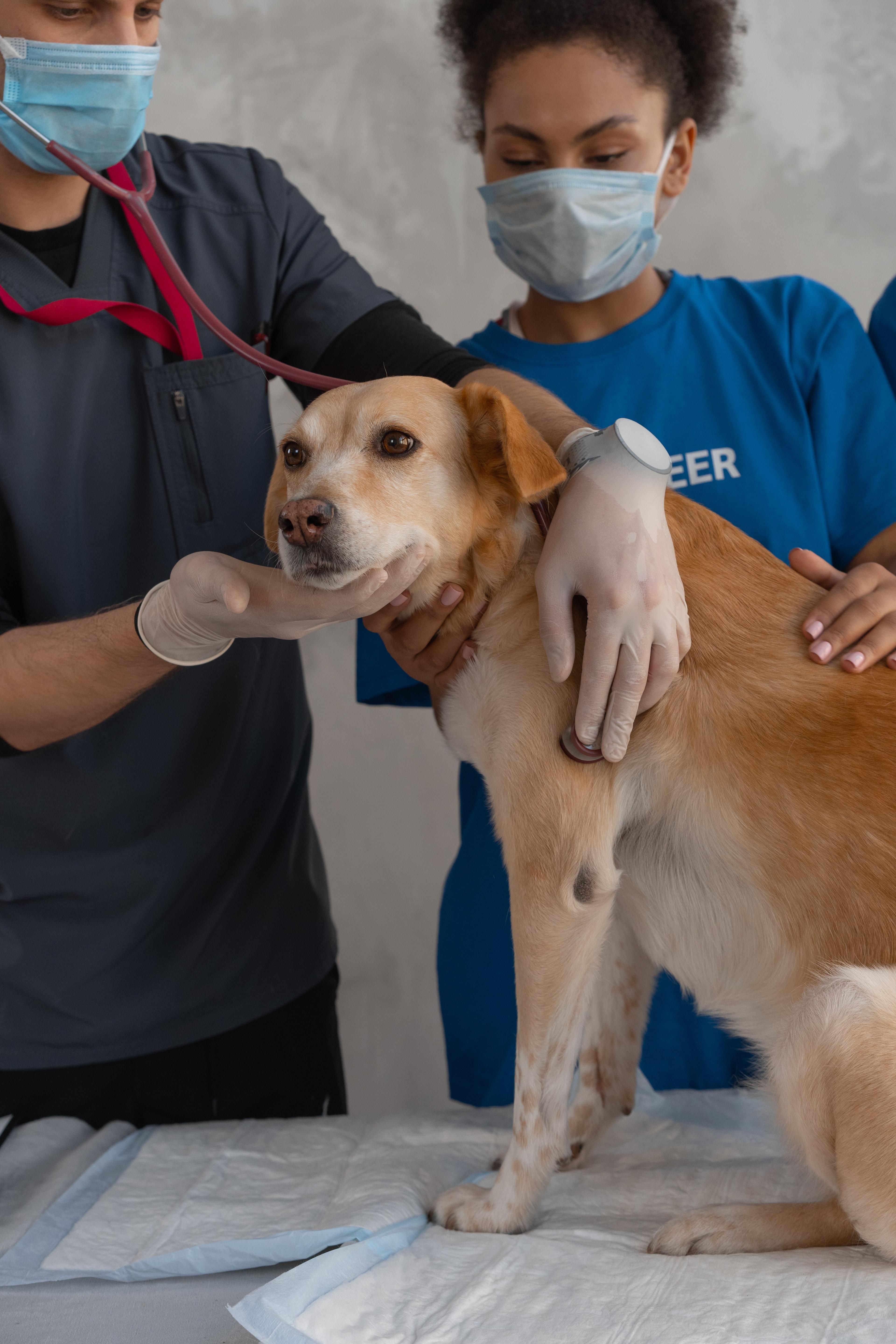Veterinary Schools: Tips for Choosing the Right Veterinary School for You
Are you considering a career in veterinary medicine? Choosing the right veterinary school is crucial for your success.
Posted March 6, 2025

Table of Contents
Becoming a veterinarian is a dream for many animal lovers, but choosing the right veterinary school can be a daunting task. With so many factors to consider, it can feel overwhelming to determine which program is the best fit for you. In this article, we’ll explore everything you need to know to make an informed decision about veterinary school, including factors to consider, the admissions process, and your career opportunities after graduation.
Factors to Consider When Choosing a Veterinary School
When choosing a veterinary school, there are a variety of factors to consider. One of the most important is the curriculum and specializations offered by the program. Make sure the program you’re considering offers courses that align with your career goals and interests. Consider the faculty and staff as well; research who will be teaching you and their areas of expertise.
Another key factor to consider is the location of the veterinary school. Some students prefer schools located in urban areas, while others may prefer a more rural setting. Additionally, consider the cost of attendance; veterinary school can be expensive, and you’ll want to ensure that the program you choose provides good value for the investment.
It is also important to consider the opportunities for hands-on experience and clinical rotations offered by the veterinary school. Look into the school’s partnerships with local clinics and hospitals, as well as any opportunities for international experiences. These experiences can provide valuable practical skills and networking opportunities for your future career.
Accreditation: Why It Matters for Veterinary Schools
When researching veterinary schools, it’s critical to verify that the program is accredited by the American Veterinary Medical Association (AVMA). Accreditation is essential, as it ensures that the program complies with rigorous academic standards and prepares you for a career as a veterinarian.
Accreditation also plays a crucial role in your ability to obtain licensure as a veterinarian. Most states require that you graduate from an accredited program in order to be eligible for licensure. Additionally, many employers prefer to hire graduates from accredited programs, as it demonstrates that you have received a high-quality education and are well-prepared for the demands of the job.
Curriculum and Specializations: What You Need to Know Before Choosing a Veterinary School
As mentioned earlier, choosing a program with a curriculum that matches your interests and career goals is essential. For example, some programs focus on small animal medicine, while others emphasize large animal medicine. It’s also essential to consider if the program offers specializations such as surgery, dermatology, or dentistry.
Another important factor to consider when choosing a veterinary school is the availability of hands-on experience. Look for programs that offer clinical rotations or externships, which allow you to gain practical experience working with animals under the supervision of licensed veterinarians. This type of experience is invaluable when it comes to preparing for a career in veterinary medicine.
It’s also worth considering the location of the veterinary school. If you’re interested in working with a specific type of animal, such as marine mammals or exotic animals, you may want to choose a program that is located near a zoo or aquarium. This can provide you with unique opportunities to gain experience working with these types of animals and make valuable connections in the industry.
Faculty and Staff: Who Will Be Teaching You at Your Chosen Veterinary School?
The faculty and staff at your chosen veterinary school can have a significant impact on your education. Research their areas of expertise, experience, and teaching methods. Look for programs with professors who are leaders in their field and have experience in academia and clinical practice.
Another important factor to consider when evaluating the faculty and staff at your chosen veterinary school is their accessibility and willingness to help students. Look for programs with professors who are known for being approachable and supportive of their students. This can make a big difference in your learning experience and overall success in the program.
It's also worth considering the diversity of the faculty and staff at your chosen veterinary school. Look for programs that prioritize diversity and inclusion, and have a faculty and staff that represent a range of backgrounds and perspectives. This can enhance your education by exposing you to different viewpoints and experiences, and better prepare you for working in a diverse field.
Research Opportunities in Veterinary Schools: How to Find the Best Research Programs
Some veterinary schools offer research opportunities for students interested in pursuing an academic career or expanding their knowledge in a specific area. Research programs can provide invaluable experience and skill development, so it’s essential to research the opportunities available at each school to choose the one that best aligns with your career goals.
When researching research programs at veterinary schools, it’s important to consider the faculty members and their areas of expertise. Look for schools with faculty members who have research interests that align with your own. This will not only increase your chances of being accepted into a program, but it will also provide you with a mentor who can guide you through the research process and help you develop your skills.
Internship and Externship Programs: Why They Are Essential for Your Career in Veterinary Medicine
Internship and externship programs offer hands-on experience in a veterinary clinic or hospital. Completing a veterinary internship or externship is an excellent way to gain practical experience and make connections in the field. Many veterinary schools require internships or externships to graduate, so be sure to look for programs that offer robust programs.
Moreover, internship and externship programs provide an opportunity to work with experienced veterinarians and learn from their expertise. You can observe how they diagnose and treat animals, perform surgeries, and communicate with pet owners. This exposure to real-world scenarios can help you develop critical thinking and problem-solving skills that are essential for a successful career in veterinary medicine.
Additionally, participating in an internship or externship program can help you determine your area of interest within the field. You may discover that you have a passion for working with exotic animals, or that you prefer to focus on small animal medicine. This knowledge can help you make informed decisions about your future career path and guide you towards the right opportunities.
Cost of Attendance: How to Choose a Veterinary School that Fits Your Budget
The cost of attending veterinary school can be expensive, so it’s crucial to choose a program that fits your budget. Consider not only tuition but also living expenses. Some programs offer scholarships, grants, or other forms of financial aid, so be sure to research these options to make your education more affordable.
Additionally, it’s important to consider the potential return on investment for your veterinary education. Look into the average salaries for graduates of the programs you are considering, as well as the job placement rates. This information can help you make an informed decision about which program will provide the best value for your money in the long run.
Admissions Process: Tips for Crafting a Competitive Application for Veterinary School
The admissions process for veterinary school is competitive, so it’s essential to craft a strong application. Make sure to present yourself in the best possible light by highlighting your strengths and achievements. Focus on developing a strong personal statement, showcasing your passion for animal welfare and your reasons for pursuing a career as a veterinarian.
Another important aspect of a competitive veterinary school application is your academic record. Admissions committees will be looking for evidence of strong academic performance, particularly in science courses. Make sure to take challenging courses and maintain a high GPA. Additionally, gaining experience in the field through internships or volunteer work can demonstrate your commitment to the profession and give you valuable hands-on experience.
It’s also important to research the specific veterinary schools you’re interested in and tailor your application to their unique requirements and values. Some schools may place a greater emphasis on certain aspects of the application, such as research experience or community service. By understanding what each school is looking for, you can better position yourself as a strong candidate.
Campus Life and Culture: What to Expect at Different Veterinary Schools
Understanding the campus life and culture at various veterinary schools can be helpful in determining which program is the best fit for you. Some schools have a strong emphasis on hands-on learning, while others focus heavily on research opportunities. Consider which environment aligns with your learning style and career goals.
Career Opportunities After Graduation from a Veterinary School
Graduating from veterinary school opens a world of career opportunities. Veterinarians can work in a variety of settings, including private practices, research institutions, and government positions. It’s up to you to research the different avenues and determine which ones align with your interests and career goals.
The Importance of Networking in the Veterinary Field
Networking in the veterinary field can be incredibly important for your career. Make connections with professors, industry professionals, and fellow students to expand your opportunities. Attend veterinary conferences, join professional organizations, and stay active on social media to stay current in the field.
Continuing Education Options for Veterinarians After Graduation
Continuing education is essential for veterinarians to stay current with the latest advances in technology and research. There are continuing education opportunities available for veterinarians, including conferences, workshops, and online courses.
Conclusion: Finding the Perfect Veterinary School for You
Choosing the right veterinary school is a significant decision that should not be taken lightly. Consider the factors outlined in this article, including accreditation, curriculum, faculty, and cost of attendance. Remember, veterinary school is only the first step in your career as a veterinarian. Make the most of your opportunities, network, and continuously learn to achieve your career goals.












